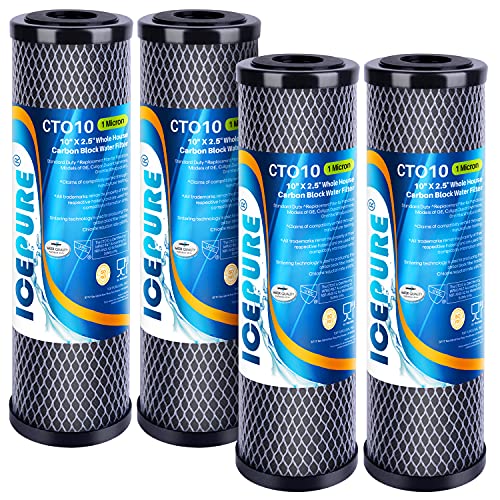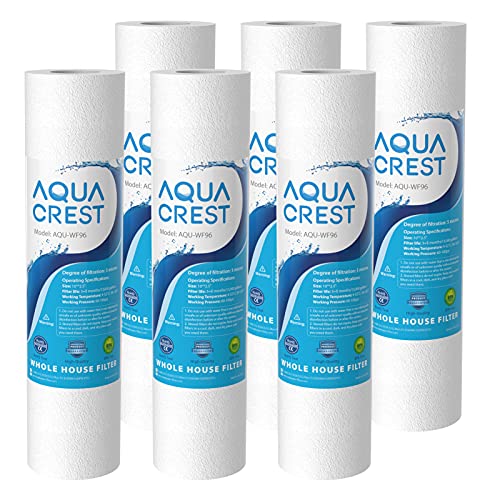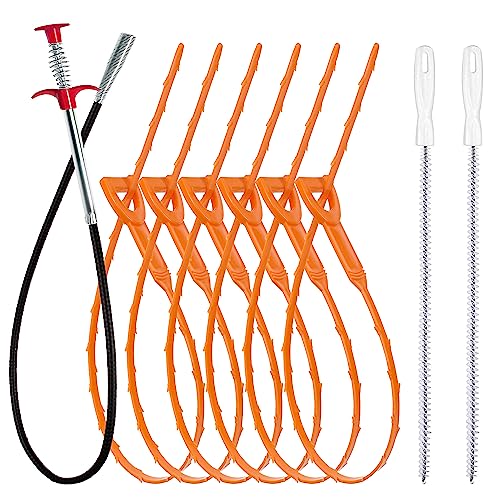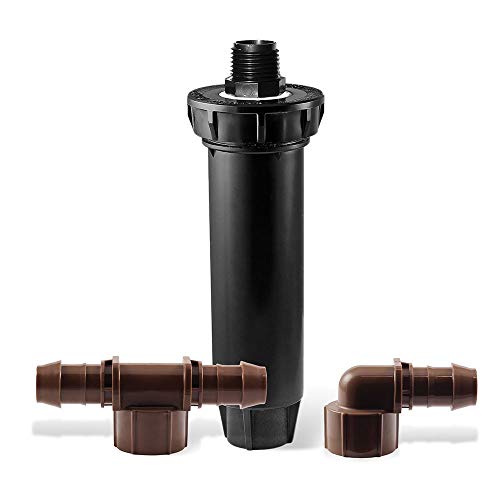Went my son's house for Christmas Eve and I knew his new home (4-5yrs??) was plumbed with pex as i saw the stuff being installed during construction. I know what it looks like and a little about it but all my DIY stuff has been with stuff before I ever even heard of pex. OK so I tried testing how the angle valves were working under a toilet just for the hell of and lo and behold the cheap full turn angle valve was frozen open. So this is probably the case thru out the house-----cheap contractor crap. So finally I need to know how what are differences between installing angle stops on pex and copper. I have done copper but not the other. So any advice so I can help my son out? I will start researching pex and see what happens, but honestly pex sounds like a foreign word!!!!!
You are using an out of date browser. It may not display this or other websites correctly.
You should upgrade or use an alternative browser.
You should upgrade or use an alternative browser.
face to face with an unknown called pex
- Thread starter sewergas
- Start date

Help Support Plumbing Forums:
This site may earn a commission from merchant affiliate
links, including eBay, Amazon, and others.
With pex you crimp rings on, you need a special tool to do so. If its wirsbo pex then you can use an expansion tool. You can crimp wirsbo but cannot expand regular crimp style pex or it'll crack. I would just stick to crimp personally. And if your gonna spend the time and effort get 1/4 turn angle stops.






These are what you use to cut pex. And the beauty of pex is you can crimp with water in line, unlike copper which can be a pain
I also prefer the crimp (annealed copper) rings over the cinch (stainless oetiker) style clamps. I believe the crimp have a more even sealing area, while the cinch are more like hard to remove hose clamps.
Appreciate the responses. Pex looks easier to work with but I used to have home plumbed with PB which was a disaster! So I guess I do not trust anything which looks like PB which was easy to work on but continued leak at every conceivable connection. Plastic scares the hell out of me. All homes in my neighborhood got replumbed at no cost based on a rather large $$$$$$ settlement with the maker of PB (Shell). But I think pex is having a better time of it. That being said I think I will invest in the ncecessary tools and hope for the best..............again, thanks for you views............SG

$23.99 ($12.00 / Count)
$26.99 ($13.50 / Count)
AQUA CREST FXHSC Whole House Water Filter, Replacement for GE® FXHSC, GXWH40L, GXWH35F, American Plumber W50PEHD, W10-PR, Culligan® R50-BBSA, 5 Micron 10" x 4.5", High Flow Sediment Filters, Pack of 2
Water Purity Expert

$29.99 ($7.50 / Count)
$39.86 ($9.96 / Count)
ICEPURE 1 Micron 2.5" x 10" Whole House CTO Carbon Sediment Water Filter Cartridge Compatible with DuPont WFPFC8002, WFPFC9001, SCWH-5, WHCF-WHWC, WHCF-WHWC, FXWTC, CBC-10, RO Unit, Pack of 4
ICEPURE Store

$35.99 ($12.00 / Count)
$40.78 ($13.59 / Count)
AQUA CREST FXHTC Water Filter Whole House Water Filter, Well Water Filter Replacement for GE® FXHTC, GXWH40L, American Plumber W10-PR, Culligan® RFC-BBSA, W10-BC, Carbon Filters, 5 Micron, Pack of 3
Water Purity Expert

$31.99 ($10.66 / Count)
$35.86 ($11.95 / Count)
Waterdrop AP810 Whole House Water Filter, Replacement for 3M® Aqua-Pure® AP810, AP801, AP811, Whirlpool® WHKF-GD25BB, WHKF-DWHBB, 5 Micron, 10" x 4.5", Well & Tap Water Filter, Pack of 3
WaterdropDirect

$11.96 ($5.98 / Count)
$12.99 ($6.50 / Count)
GE FXWTC Whole Home System Replacement Filter Set, Pack of 2 - NSF Certified: Reduces Chlorine, Sediment, Rust & Other Impurities - Replace Every 3 Months for Best Results (replaces 910163)
Amazon.com

$31.99 ($16.00 / Count)
$39.99 ($20.00 / Count)
PUREPLUS 5 Micron 10" x 4.5" Whole House Sediment and Carbon Water Filter Replacement Cartridge for GE FXHTC, GXWH40L, GXWH35F, GNWH38S, Culligan RFC-BBSA, WRC25HD, PP10BB-CC, Pentek RFC-BB, 2Pack
PUREPLUS FILTERS

$32.98 ($5.50 / Count)
Membrane Solutions 5 Micron 10"x2.5" String Wound Whole House Water Filter Replacement Cartridge Universal Sediment Filters for Well Water - 6 Pack
Membrane Solutions Corp

$26.45
$32.15
RIDGID 57003 EZ Change Plumbing Wrench Faucet Installation and Removal Tool
Amazon.com
I also prefer the crimp (annealed copper) rings over the cinch (stainless oetiker) style clamps.
I believe the crimp have a more even sealing area, while the cinch are more like hard to remove hose clamps.
In everyone's experience here, is there been any trouble(s) with the Oetiker style clamps (SHARKBITE)? I decided to go this route after extensive reading due to lower tool cost and execution. The PEX will be in an open area to be monitored.
Well the cinch clamps in my experience don't work as well as the rings I posted. I've replaced half a dozen cinch ring connections because they leaked and they appeared to be installed correctly. I agree with rob they are like hose clamps that are hard to remove. I look at this way, yes the tool and rings are more expensive but you get what you pay for. But that's just my opinion
Appreciate the responses. Pex looks easier to work with but I used to have home plumbed with PB which was a disaster! So I guess I do not trust anything which looks like PB which was easy to work on but continued leak at every conceivable connection. Plastic scares the hell out of me. All homes in my neighborhood got replumbed at no cost based on a rather large $$$$$$ settlement with the maker of PB (Shell). But I think pex is having a better time of it. That being said I think I will invest in the ncecessary tools and hope for the best..............again, thanks for you views............SG
I'm going to stir the pot a little here. Keep in mind this is my opinion based on my experiences with PB pipe. All the leaks that I have repaired with PB pipe have been with plastic PB fittings or with aluminum crimp rings. I have yet to see a failed section of the pipe it self. The reason for most of the failures were because the pipe was installed in a bind. Putting undo pressure on the fittings and joints. The plastic fitting became brittle over time and cracked. In my area most of the pipe was looped under the slab with all joints being made within the walls not under the slab. This is the same method that was and still is being used today with copper and PEX pipe. I have repaired far more leaks under the slabs on copper tubing then I have with PB or PEX. In fact none comes to mind for PB or PEX. The truth of the matter is that I have PB pipe in my own home that is 18 years old with out one failure. Of course after saying that it may happen tomorrow. But I have also seen copper fail in a much shorter time period then 18 years. My opinion on PB is there were some failures do to plastic fittings and aluminum crimp rings (along with bad workmanship) and the lawyers jumped on it and turned it into a large law suite causing the ban on the pipe. Just one side note. The PB that we used had copper fittings and copper crimp rings.
John
So far, the only time I have seen PB pipe itself fail is when was kinked during the original installation. All of the other leaks I have seen have been at (usually) plastic fittings.
johnjh2o said:I'm going to stir the pot a little here. Keep in mind this is my opinion based on my experiences with PB pipe. All the leaks that I have repaired with PB pipe have been with plastic PB fittings or with aluminum crimp rings. I have yet to see a failed section of the pipe it self. The reason for most of the failures were because the pipe was installed in a bind. Putting undo pressure on the fittings and joints. The plastic fitting became brittle over time and cracked. In my area most of the pipe was looped under the slab with all joints being made within the walls not under the slab. This is the same method that was and still is being used today with copper and PEX pipe. I have repaired far more leaks under the slabs on copper tubing then I have with PB or PEX. In fact none comes to mind for PB or PEX. The truth of the matter is that I have PB pipe in my own home that is 18 years old with out one failure. Of course after saying that it may happen tomorrow. But I have also seen copper fail in a much shorter time period then 18 years. My opinion on PB is there were some failures do to plastic fittings and aluminum crimp rings (along with bad workmanship) and the lawyers jumped on it and turned it into a large law suite causing the ban on the pipe. Just one side note. The PB that we used had copper fittings and copper crimp rings.
John
I haven't saw plastic PB fittings yet however my mom has it in her home with no issues and its the same age as your home *crosses fingers* I think I would agree that the pipe itself wasn't that awful it was a lot to do with install and plastic fittings. I think pex is probably a better designed product and I think it'll be around for a while. They learnt from the flaws in PB pipe and corrected them, but hey you never know! Regardless its the install that makes the difference with your plumbing. If someone does a poor job whether it be pex, PB, or copper you will have issues.
Thanks again for the responses. Posts are correct but I did not make myself clear ----- all the problems I had way back then were at the connections only and no actual leaks in the PB pipe itself. All the connections were held together by aluminum "clamps" and cheapo looking fittings and this where the leaks happened (don't know if it was the clamp or the fitting). The entire development was repiped at no cost to the homeowner but must have cost an arm and a leg to Shell. I heard one of the plumbers say that this settlement with Shell (manufact. of PB) was one of the largest in history! Been researching and I will ask another question since it can be confusing: "best" way to connect= crimp, pinch or expand????? personal preference, I'm sure, but several sources say using only pex "A" is expansion any thoughts?? You all have probably gone thru this before so please indulge me if you will... your experience means a lot...............Regards, SG
I've made a few repairs on polybutylene at the fittings. They were not stressed, just old. Slightly moving the fittings sometimes resulted in leaks. Hopefully pex doesn't behave the same way in 20 years. But if it does...... $$$ lol
All I use are crimp rings. The tool is a little expensive. Try E-bay then after you a finished using it re-sale it on E-bay.
John
John














![MEISTERFAKTUR drain snake 2.0 [50 FT] - with drill attachment - Ideal plumbing snake for sink and drain unblocking - Solid drain auger for real DYIs! (50 FT - 1/4 inch)](https://m.media-amazon.com/images/I/41VwmTiOsgL._SL500_.jpg)

































